My Socialist Hell: How Venezuela Uses Hunger to Control a Starving Population
CARACAS, Venezuela – For the past 24 years (and counting) of socialist revolution, the ruling regime has used basic needs – housing, food, jobs – to force people to depend on the government.
Among the most important tools for this manipulation is the “Local Committees for Supply and Production,” or CLAP, a free food program born from the total economic collapse socialism caused in the country.
For the sake of this article, I volunteered to help carry some of the CLAP bags distributed to some of my neighbors in this apartment building. Doing so helped me stretch my legs one afternoon, genuinely provide some sort of assistance to the elderly that live in this building (some of whom have a great reliance on the program), and sure, to get close to the distribution process in this area and sneak a picture or two.
CLAP is a program that the Maduro regime implemented in 2016 to have each Communal Council (groups spread across the territory that answer to the socialist regime and organize the socialist party’s activities and whatnot) distribute a box, sometimes a bag, full of highly subsidized food to registered families.
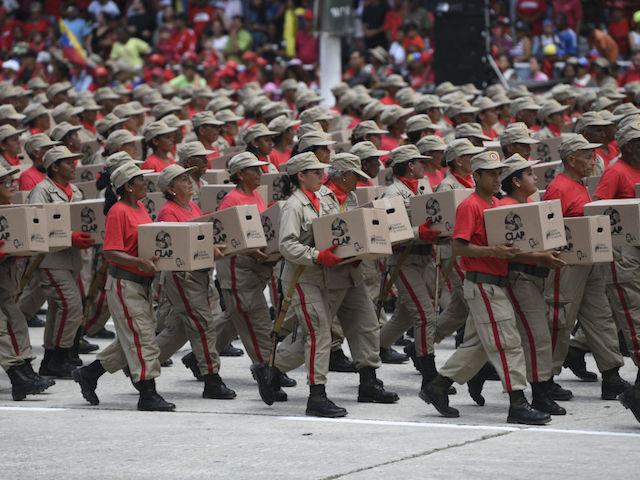
Members of the National Bolivarian Militia march with government issue food distribution boxes, known by the Spanish acronym CLAP, during a Venezuela Independence Day military parade in Caracas, Venezuela, on Friday, June 5, 2019. (Carlos Becerra/Bloomberg)
The cost of the bag, at least in my local community, tends to hover around $1. This month, the bag cost 25 bolivars, a little less than $1, worth 28.23 bolivars as of May 26. This represents about one-sixth of the current minimum wage of 130 bolivars (roughly $5).
It may cost less in some areas and more in others, as there is no set price. Basically free food may sound great on paper — but when you take a deep dive into it, you realize that not all that glitters is gold.
Reports of CLAP kits containing low quality, often outright rotten food full of worms have been abundant these past seven years and yet, because socialism destroyed the country’s economy and people’s ability to purchase food, many still have to rely on these bags for their sustenance. It’s like having your legs broken, but then being told you should be grateful that the person who broke your legs is loaning you a pair of broken clutches every now and then.
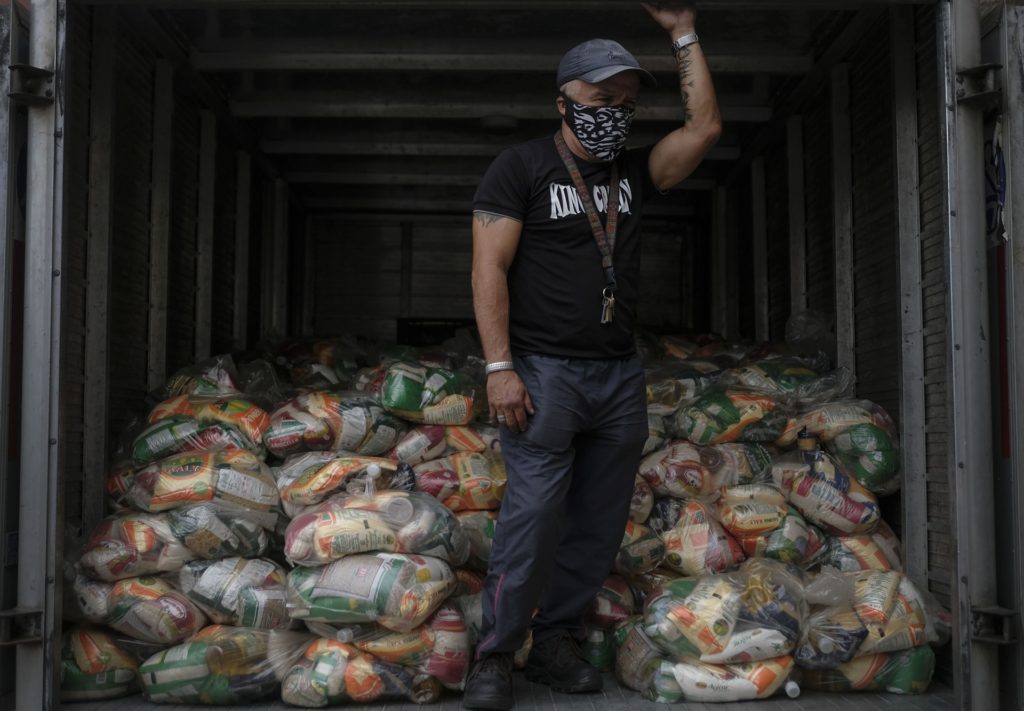
In this April 10, 2021 file photo, a man waits to unload bags of basic food staples, such as pasta, sugar, flour, and kitchen oil, provided residents through the CLAP government food assistance program in the Santa Rosalia neighborhood of Caracas, Venezuela. (AP Photo/Matias Delacroix, File)
Maduro claimed in March that 7.5 million Venezuelan households receive a CLAP bag at least once per month.
Every Communal Council has its own logistics and way to distribute the CLAP bags. In my area’s council, they spread the word through WhatsApp group chats made for every building, letting people know a day beforehand.
Once the call to pick up is made, it’s up to every building to figure out if someone can lend a vehicle, or if every “beneficiary” will go pick up theirs only or help bring another neighbor’s as well. With that in mind, I went in with my neighbors on May 10 and walked uphill to the place where the area’s bags are distributed every month.
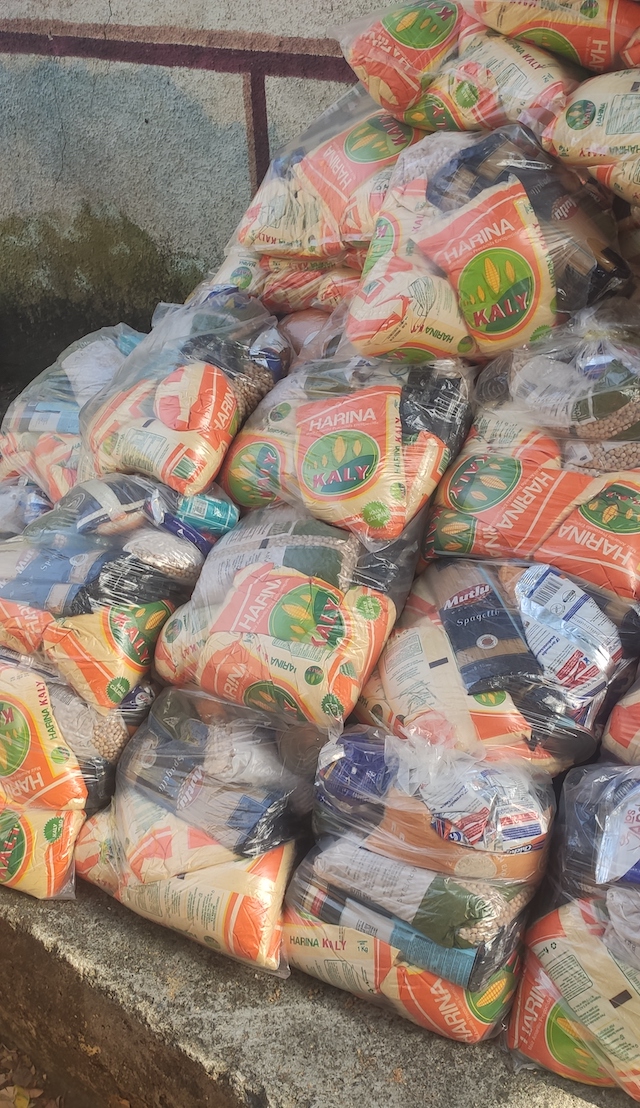
CLAP bags dumped on the street to be distributed across the community in Caracas, Venezuela, May 2023. (Christian K. Caruzo/Breitbart News)
There is not much regard for proper handling between wherever they come from and the street they are dumped on. As a result, many of the contents of the bag arrive open or with their packaging torn. I’ve been told that cooking oil, which supposedly should come with every bag, doesn’t come every month. This month’s bags did come with it.
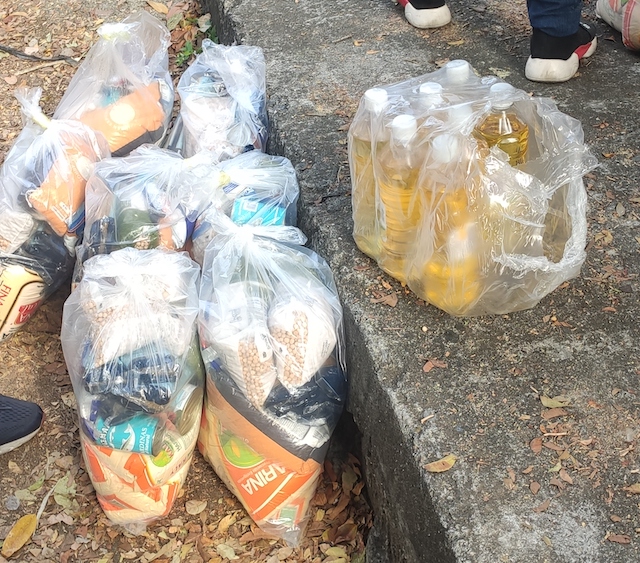
CLAP bags dumped on the street in Caracas, Venezuela, featuring cooking oil, flour, grains, and cans of sardines. (Christian K. Caruzo/Breitbart News)
While cooking oil is not guaranteed to come with every monthly CLAP bag distributed in this area, it certainly is guaranteed to come with roughly 10 kilograms’ worth of food spread between a few bags of corn flour (the main ingredient of our insignia national dish, the arepa), rice, and pasta. It may also come with a kilogram of sugar, a can of sardines (or tuna, never both at the same time), and sometimes, a can of luncheon meat. If you’re lucky, it may even come with a small 250-gram bag of powdered milk.
While most of the products are not from brands you would normally find at a supermarket, the contents of the bag are significantly cheaper than buying a single kilogram (approximately 2.2 lbs.) of the nation’s most well-known corn flour brand.
These bags are distributed on a per-family basis and the Maduro regime expects your family to sustain itself for an entire month with it— even though the rather carb-hefty package “does not make a difference” in terms of the nutritional requirements of Venezuelans according to a report published in April.
The cooking oil and powdered milk are likely the most coveted items, as these two are the most expensive. I’ve seen bottles of regular vegetable cooking oil sold for anywhere from $3 all the way up to $6 or more depending on the brand.
At least these days the powdered milk is from Lacteos Los Andes, one of the 441 companies the socialist regime seized over the years — because back in 2019 one of my neighbors received a bag of “milk” from China featuring some very Spanglish packaging.
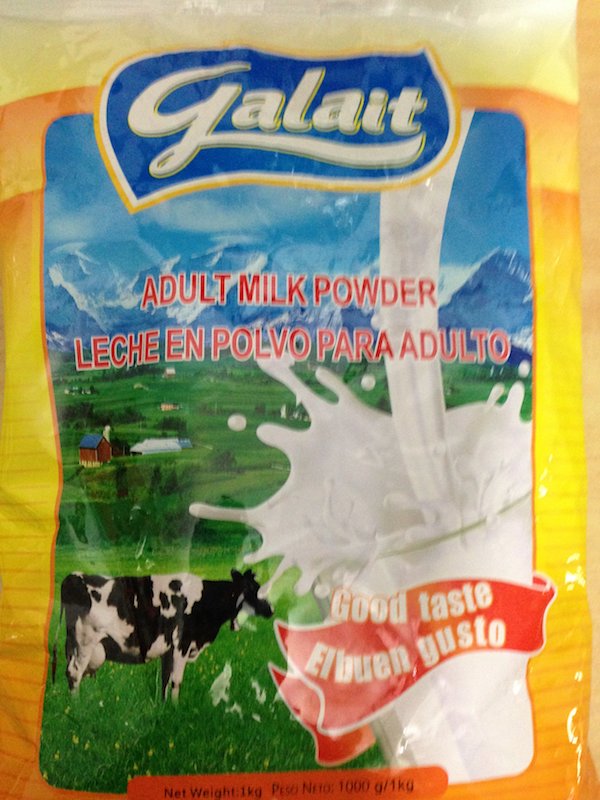
Photo of a bag of Chinese “adult powdered milk” distributed through the CLAP system in 2019. The Spanish text reads, “Thegood taste” [sic] (Christian K. Caruzo/Breitbart News)
Now, the tuna? I’m not so sure about it, as it has recently been accused of being “ground cardboard” due to its rather low quality.
Distribution is strictly controlled and the bags sent to this street are all accounted for. For example, if a building has 11 recipients of CLAP bags, then that building gets eleven bags – no more, no less. Every Communal Council has a “street leader” that oversees CLAP distribution and other affairs pertaining to that specific street, and then every building has a designated “spokesperson” that handles announcements and keeps track of distribution.
Just as you would sign to receive a package, you eventually must sign a spreadsheet as proof that you received your “benefit” from the socialist regime. No later than 24 hours, every recipient gets a text message on their phone, reminding them to log in to the Fatherland platform (a Chinese-built totalitarian system to control citizens) to keep track of what items they received.
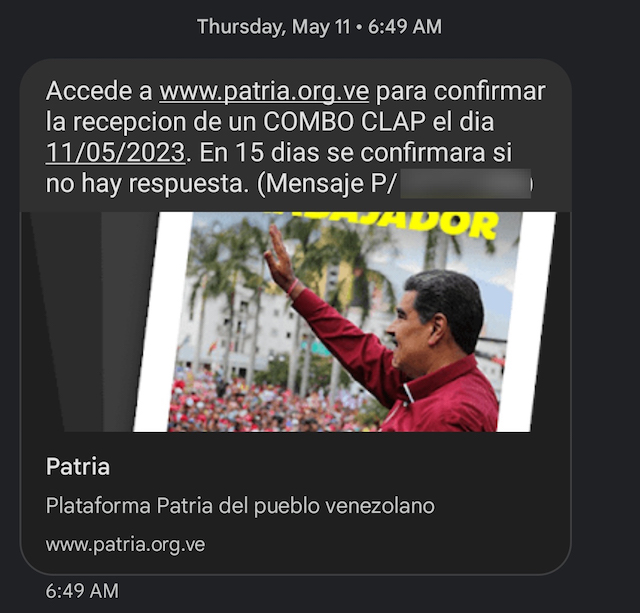
SMS reminder to log in to Venezuela’s Fatherland platform and mark your bag as received. ID number censored (Christian K. Caruzo/Breitbart News)
This step is not actually mandatory, as if you don’t do it within 15 days, the Fatherland platform automatically marks all items as received.
Based on what I’ve been told, this step is meant to see if some of the items went “missing” along the way — but let’s be real, it’s not like they’re gonna do anything if people mark their flour as missing or something like that.
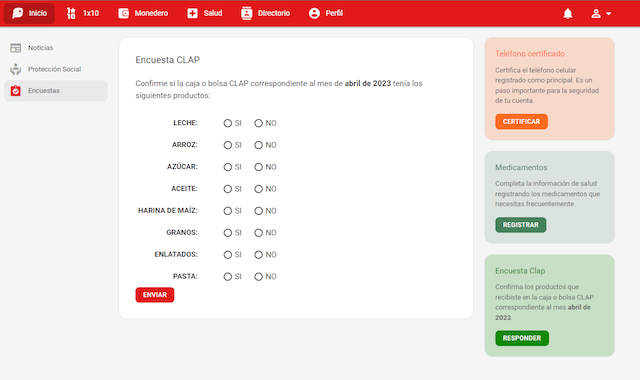
Monthly Fatherland platform survey with a list of items such as flour, rice, pasta, and oil. Users are expected to say what items they received (Christian K. Caruzo/Breitbart News).
There is a second, separate distribution that occurs in my local community. It doesn’t have a name, but it’s often referred to as the “Protein Combo.” This one is much simpler and, like the bags, is heavily controlled and only handed out to “beneficiaries” of the CLAP program. As its name suggests, it is a heavily subsidized protein, in the form of one whole chicken and a simple mortadella.
The protein combo is distributed in the same manner as the CLAP bags here, but the chicken does at least come frozen.
If you work at a public office, or retired from one due to age, then you are eligible for an additional bag. These bags contain higher quality products, as a study published on May 2 by the Venezuelan news outlet El Pitazo revealed. The bags assigned to public office workers contain not only better quality items, but more variety.
El Pitazo’s study also revealed that there’s a sort of hierarchy among public offices and ministries, with some having more benefits than others.
Venezuelan nutritionist Marianella Herrera explained to El Pitazo that people who depend on the CLAP bags, which mostly only contain rice and spaghetti, receive very few nutrients, and that a “CLAP-only diet” is “terrible for the health and well-being of the population.”
Despite the clear health issues with the CLAP bag contents, many across the country who have been thrown into extreme poverty must rely on these broken crutches that the men and women who broke their metaphorical legs provide for their survival.
Christian K. Caruzo is a Venezuelan writer and documents life under socialism. You can follow him on Twitter here.



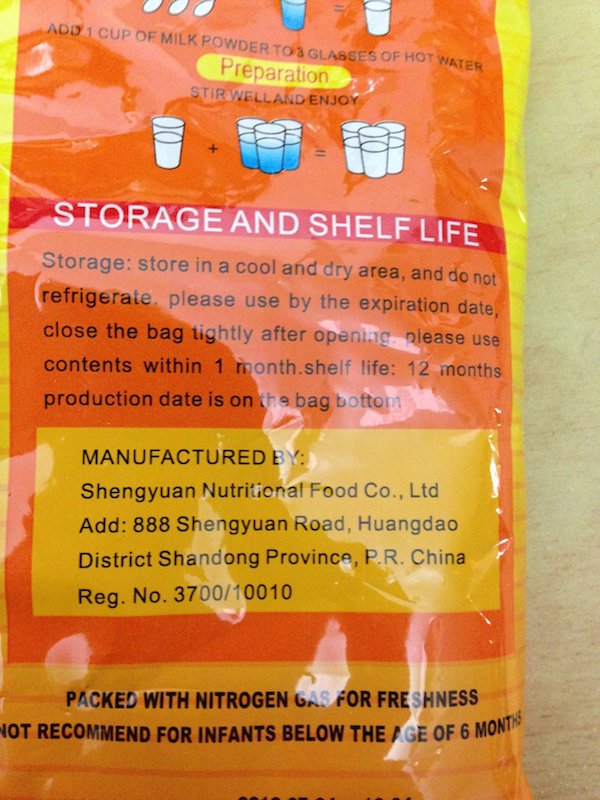


Comments are closed.